ANSA 16TH ANNUAL CONFERENCE | Neuromodulation for Optimal Performance in Times of Stress and Trauma
Event description
PLEASE NOTICE THAT THE CONFERENCE WILL BE RECORDED AND THE RECORDING WILL BE AVAILABLE FOR ATTENDEES AND PARTICIPANTS WHO WERE NOT ABLE TO ATTEND.
Message from ANSA President - Mirjana Askovic
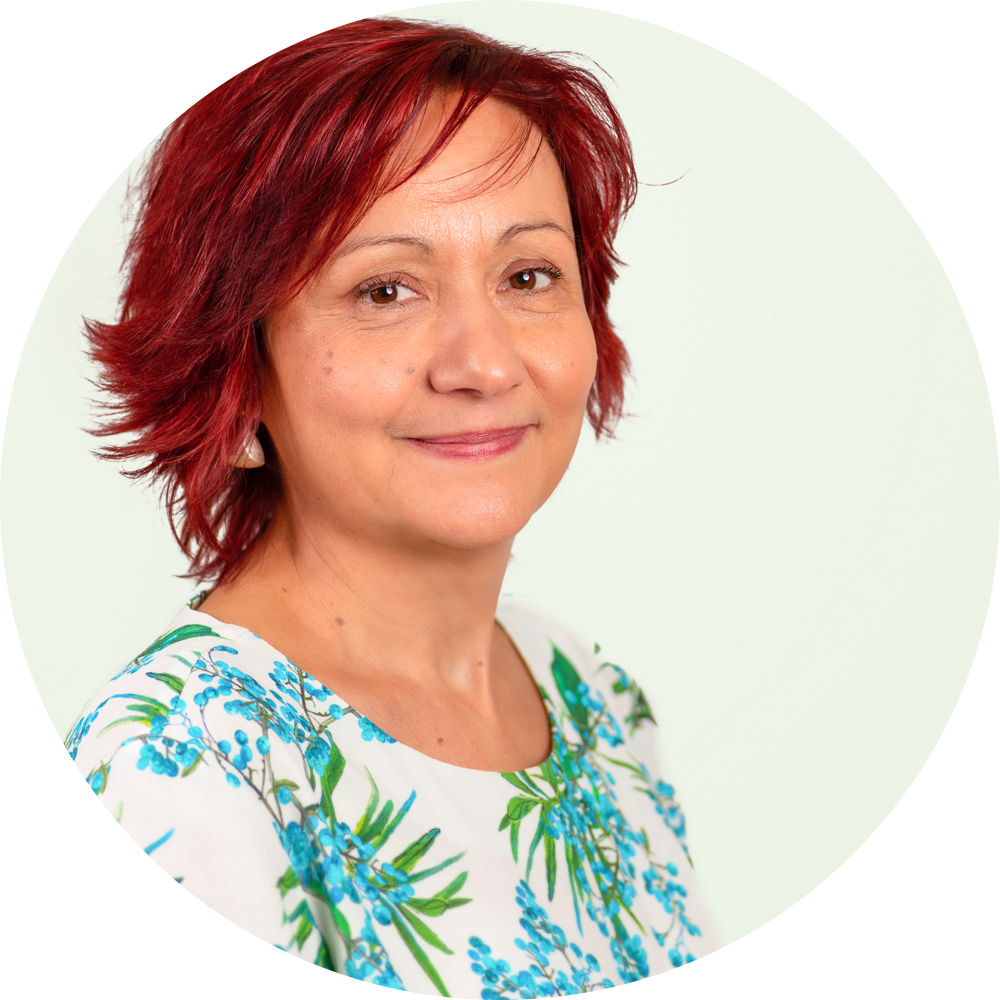
My Dear Friends and Colleagues,
Welcome to ANSA Annual Conference 2022!
This year's conference will be exciting, with a deep focus on stress and trauma and the quest for self-regulation. As we live in turbulent times, this quest is becoming more critical, requiring fully committed neurofeedback practitioners, educators, and researchers to work together. To stay the course, we need each other's support and encouragement. Sharing our knowledge, successes and challenges are essential to this conference.
We have two fantastic keynote speakers who will share with us their expertise. Sebern Fisher, one of the pioneers of Neurofeedback, will talk about the implications of recent neuroscience findings for Neurofeedback in treating developmental trauma. At the same time, Ruth Lanius, a brilliant clinician-scientist, will discuss the mechanisms underlying neuroplastic changes of alpha neurofeedback and the application of this type of Neurofeedback in patients with complex trauma. Ruth will also describe how combining alpha neurofeedback with traditional Indigenous practices can be used as a means of addressing the intergenerational transmission of trauma in this population.
ANSA Board is working hard to organise this event, and we invite you to share your case studies, clinical expertise, and research findings.
We look forward to seeing you at our virtual conference in October 2022.
ABOUT THE SPEAKERS
Keynote presentations:
Sebern Fisher (USA)
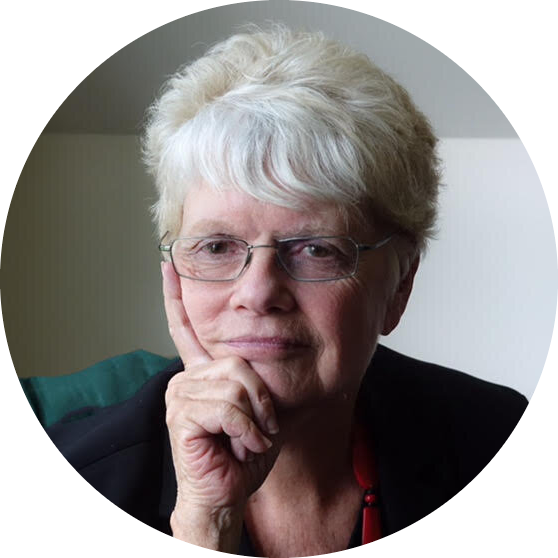
Sebern F. Fisher, MA, is a psychotherapist and neurofeedback practitioner in private practice who specialises in attachment issues. She trains professionals nationally and internationally on neurofeedback, neurofeedback and attachment disorder, and the integration of neurofeedback with psychotherapy. From 1980 to 1997, Sebern was the clinical director of a residential treatment program for severely disturbed adolescents in western Massachusetts. At that time, it was considered to be one of the best such programs in the state and, by in large, the treatment outcomes were abysmal. In efforts to better understand these kids and to enhance treatment outcomes, she introduced attachment theory in the mid-eighties and in 1991, Dialectical Behavior Therapy. Her centre became the first in the USA to adopt and implement DBT in a residential milieu. Sebern discovered neurofeedback for her own brain in the spring of 1996. She went into full time private practice in 1997 and began to integrate neurofeedback with psychodynamic psychotherapy. Her book, Neurofeedback in the Treatment of Developmental Trauma: Calming the fear-driven Brain is a direct result of this work.
Abstract
Walking the Tiger and Letting it Sleep: The implications of recent neuroscience findings for neurofeedback in the treatment of developmental trauma.
When a friend handed me a copy of Peter Levine’s book on trauma, I misread the title and I imagined this beautiful wild creature walking quietly in front of me on a leash. Misread or not, this has become my focus with neurofeedback over my last twenty-five years. I have wanted to, at the very least, domesticate the savage terror that is developmental trauma, to quiet it, to let it sleep. In this talk I’ll share three findings from the Lanius lab that I think demonstrate the core damage done by neglect and abuse in early childhood and provide an overview of the protocols and therapy I use to address this all too common catastrophe.
Ruth Lanius (Canada)
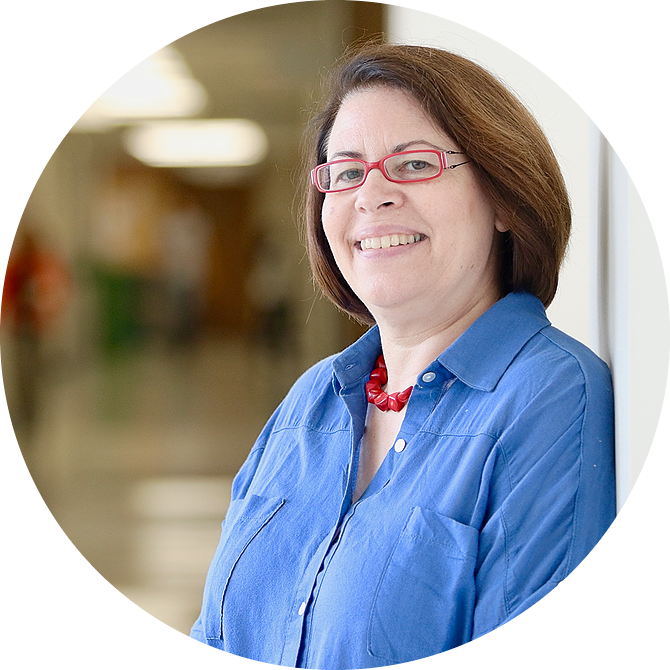
Ruth A. Lanius, M.D., Ph.D. is a Psychiatry Professor and Harris-Woodman Chair at Western University of Canada, where she is the director of the Clinical Research Program for PTSD. Ruth has over 25 years of clinical and research experience with trauma-related disorders. She established the Traumatic Stress Service at London Health Sciences Center, a program that specialises in the treatment of psychological trauma. Ruth has received numerous research and teaching awards, including the Banting Award for Military Health Research. She has published over 150 research articles and book chapters focusing on brain adaptations to psychological trauma and novel adjunct treatments for PTSD. Ruth regularly lectures on the topic of psychological trauma both nationally and internationally. Ruth has co-authored two books: The Effects of Early Life Trauma on Health and Disease: The Hidden Epidemic and Healing the Traumatized Self: Consciousness, Neuroscience, Treatment. Ruth is a passionate clinician scientist who endeavours to understand the first-person experience of traumatized individuals throughout treatment and how it relates to brain functioning.
Abstract:
Alpha Neurofeedback: Reaching a New Steady State After Trauma
Electroencephalogram (EEG) neurofeedback, aimed at reducing the amplitude of the alpha-rhythms in the brain, has been shown to alter critical brain networks associated with post traumatic stress disorder (PTSD), resulting in symptom alleviation among individuals with PTSD. A recent RCT has shown that alpha neurofeedback can lead to clinically meaningful reductions in PTSD symptoms. The mechanism underlying these neuroplastic changes of alpha neurofeedback are beginning to be revealed and will be discussed during this keynote. Moreover, the application of this type of neurofeedback in patients with complex trauma and dissociative symptomatology will be illustrated through case examples. Finally, combining alpha neurofeedback with traditional Indigenous practices will be described as a means of addressing the intergenerational transmission of trauma in this population.
Dirk de Ridder (New Zealand)
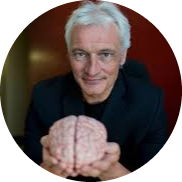
Dirk De Ridder, MD, PhD, is professor of Neurosurgery at the Dunedin School of Medicine, University of Otago in New Zealand and runs a private clinic in Belgium. He is also associated with Manipal University in India, and teaches at the University of Bonn in Germany.
His research is based on 2 pillars: 1. Network science, in which any symptom is the emergent property of a changed network, and 2. the Bayesian brain concept, i.e. considering the brain as a predictive machine that updates its predictions by active exploration of the environment through the senses, as a way to reduce the inherent uncertainty in a changing environment. Phantom percepts are seen as a maladaptive network phenomenon due to deficient updating resultant from sensory deafferentation. Trauma and PTSD can be approached from a Bayesian perspective.
His main research interest is the understanding and treatment of phantom perceptions (tinnitus, pain), especially by use of functional imaging navigated non-invasive (TMS, tDCS, tACS, tRNS, LORETA neurofeedback) and invasive (implants) neuromodulation techniques.
The approach to unravel phantom percepts is by developing an understanding of commonalities in different diseases such as in thalamocortical dysrhythmias (pain, tinnitus, Parkinson disease, depression, slow wave epilepsy) and reward deficiency syndromes (addiction, OCD, Personality disorders). This has led to novel treatment approaches for neurological and psychiatric disorders.
He has developed “burst” and “noise” stimulation as novel stimulation designs for implants, and is currently working on multifocal or network stimulation, as well as reconditioning stimulation. Burst stimulation is commercialized by Abbott as BurstDR = Burst D(e)R(idder) stimulation.
He has written 40 book chapters and more than 300 pubmed listed journal articles. More than 170 articles relate to network approaches for brain disorders. This has resulted in a Google Scholar H-index of 74, with more than 20,000 citations and an i10 index of 249.
Abstract:
Trauma, neuroinflammation and psychedelic neuromodulation: the path forward
Trauma can cause both physical and psychological damage, followed by repair via inflammatory responses. In a normal setting acute inflammation induces healing, both physically and psychologically. Depending on genetic, epigenetic and microbiome factors this inflammatory process become chronic, resulting in only partial healing with persistence of trauma associated symptoms. This chronic inflammation will alter the activity but especially connectivity within and between the three canonical cognitive networks in the brain. The triple network becomes dysfunctional, generating cognitive and autonomic symptoms and the emotional network becomes engaged at a resting state level, generating emotional problems.
Treatments exist, consisting of psychotherapy, EMDR and medication, yet sometimes these provide insufficient benefit. Non-invasive neuromodulation is a novel treatment approach that can target the triple network and has anti-inflammatory effects. Extending trauma treatment with psychedelics to disrupt pathological connectivity within and between the brain networks, and subsequently rebuilding the networks with neuromodulation such as transcranial magnetic stimulation and transcranial electrical stimulation may be the path forward.
-------------------------------------------------------------------------------------------------------
INVITED PRESENTATIONS:
Martin Teicher (USA)
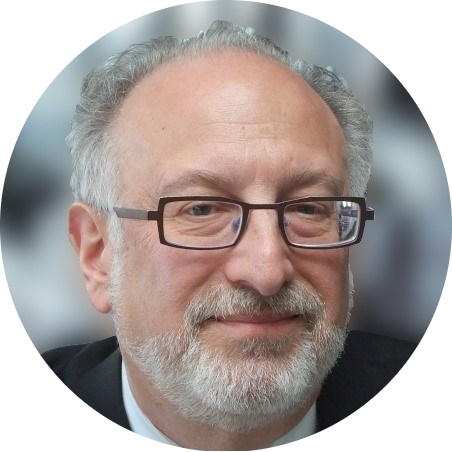
Dr. Martin H. Teicher is an Associate Professor of Psychiatry at Harvard Medical School and Director of the Developmental Biopsychiatry Research Program at McLean Hospital. He received a Ph.D. in Experimental Psychology from The Johns Hopkins University, and an M.D. from Yale Medical School, followed by residency training in Psychiatry at McLean Hospital and Harvard Medical School. Dr. Teicher is a member of the editorial board of the Journal of Child Psychology and Psychiatry, BMC Medicine and Adversity & Resilience Science. He is a member of the Scientific Advisory Council of the Juvenile Bipolar Research Foundation, a member of the Board of Children, Youth and Families at the National Academies of Sciences, Engineering and Medicine, the Board of Directors of the Trauma Research Foundation, and he has been part of Harvard University’s Brain Development Working Group. Dr. Teicher has received over 30 years of continuous NIH funding, served on or chaired numerous review committees for the National Institutes of Health, published more than 200 articles, been awarded 19 US patents, and has received numerous honors.
The mission of Dr. Teicher’s research program is to improve the lives of children, adolescents, and adults by exploring the cause and assessment of psychiatric disorders that arise during development. Dr. Teicher is particularly focused on the enduring psychiatric and neurobiological effects of childhood maltreatment. His talk will focus on the potential effects of childhood maltreatment on brain structure and function.
Abstract:
Childhood Maltreatment, Brain Development, and a New Understanding of what Recovery Entails
Exposure to childhood adversity markedly increases the risk of developing mood, anxiety, personality, substance abuse and psychotic disorders. Recent studies suggest that clinical sequelae may stem, at least in part, from enduring adverse effects on brain development. Generally, early onset and longer duration of abuse have been associated with greater brain changes, but this is an oversimplification. It appears that stress-susceptible brain regions have their own unique sensitive periods (or windows of vulnerability) to the effects of early stress. Further, evidence also suggests that maltreated and non-maltreated individuals with the same DSM diagnoses are clinically and neurobiologically distinct. We refer to the disorder in the maltreated cohort as an ‘ecophenotype’ and show that it is associated with earlier age of onset, more severe course, more comorbid diagnoses and poorer response to first-line treatments. A key challenge has been to understand why some individuals appear to be resilient to the psychiatric sequelae of abuse, particularly as they show the same basic array of alterations in stress-susceptible brain regions as comparably maltreated individuals with severe psychopathology. Our recent studies of brain network architecture have identified additional alterations in the brains of maltreated individuals that enable them to effectively compensate and to obtain high levels of mental health. This leads to a new understanding of how recovery occurs and how effective treatments may work – which is not to reverse the effects of maltreatment, but to foster compensatory resilience by altering the connectivity of specific brain regions.
Ainat Rogel (USA)

Ainat Rogel, PhD, MSW, BCN, LICSW is the co-founder and co-director of Boston Neurodynamics where she practices neurofeedback, performs and analyses brain mapping (qEEG), trains and supervises neurofeedback practitioners. She is a licensed independent clinical social worker and a BCIA certified neurofeedback provider and supervisor. Ainat also works as a clinician and group intake coordinator at Arbour Outpatient Clinic in Jamaica Plain, Boston. She believes in incorporating neurofeedback as part of therapy, and focuses on developmental trauma.
Ainat received her Ph.D. in Computer-Science and Neurobiology from The Hebrew University in Jerusalem, Israel, received her MSW from Simmons College in 2014 and LICSW in 2017. She has worked in brain research at various places such as MIT, the Marinos Center for Biomedical Imaging and Hebrew University in Jerusalem, Israel. Since 2010, she has focused on neurofeedback research and clinical work at the Mental Health Center in Beer-Sheva, Israel and at Ben-Gurion University. She has been on the staff at the Trauma Center at JRI since 2012 as a chief scientist of neurofeedback and a senior affiliate at the neurofeedback clinic. She also trains and supervises NFB clinicians. She coordinated the child Neurofeedback Study and was part of the adult NFB study.
Abstract:
The Impact of Neurofeedback on Children and Adults with Developmental Trauma: Two Random-Control Studies
The results of studies showing that NFT significantly reduced PTSD symptoms as well as improving executive functioning condition on children and adults with developmental trauma. In addition, NFT improved behavioral symptoms of the children with developmental trauma.
Developmental trauma (DT) is arguably one of the costliest public health challenge in the USA. DT is a chronic early childhood exposure to neglect and abuse by caregiver. It has been shown to have a long-lasting pervasive impact on mental, physical and neural development, including problems with executive functioning, attention, impulse control, self-regulation. These deficits, not only interfere with adequate daily functioning and a shorter life spam, but also interfere with the ability to benefit from treatments. Ainat describes the results of two randomised control studies, one with adults and the other with children ages 6-13, all with developmental trauma and for whom previous other therapies were not beneficial. The results show that 24 sessions of NFT significantly reduced the symptoms of PTSD and improved executive functioning for both the adults and the children. In addition, for the children, NFT significantly reduced externalizing and internalizing problems. The presentation will also argue for the need of future studies to improve the impact of NFT study that consists of a larger sample size, longer course of NFT, and different protocols as well as an analysis of differential impact of type, length and age of onset of the trauma(s). More sessions of NFT and longer follow-up assessments are necessary to determine whether NFT gains can be maintained over time, and whether booster sessions will be beneficial.
Belinda Liddell (Australia)
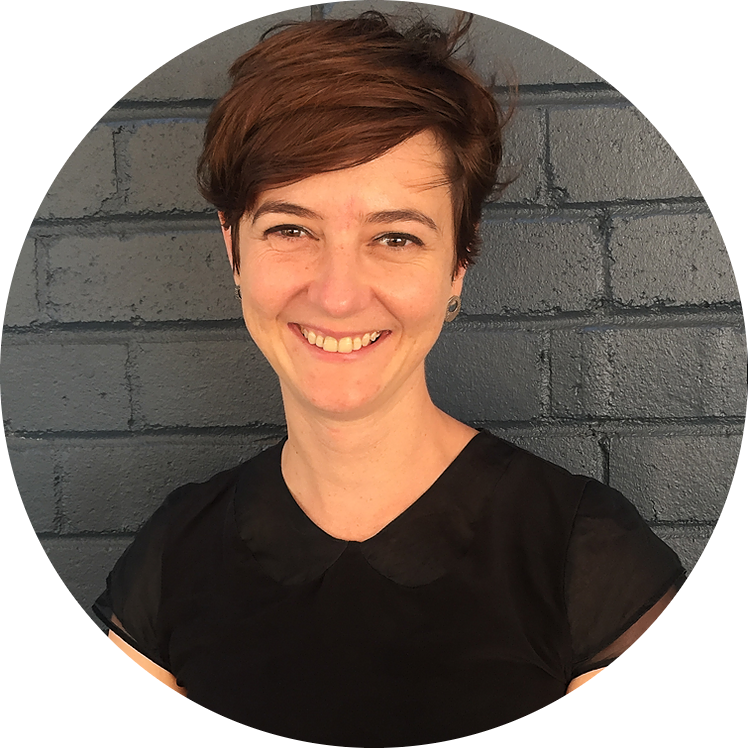
Dr Belinda Liddell is a Senior Research Fellow in the School of Psychology at UNSW Sydney and the Deputy Director of the Refugee Trauma and Recovery Program. For the last 9 years she has been conducting research that draws upon a neuroscience and psychological science framework to understand the biological, social and cultural mechanisms underlying the impact of refugee trauma and stress. She has published over 75 studies and her work is funded by the Australian Research Council and NHMRC. Belinda works closely with leading humanitarian and refugee service organisations including STARTTS, Australian Red Cross, Settlement Services International and International Committee of the Red Cross, to ensure her research is relevant and has significance for practice and policy. Belinda holds a PhD in Cognitive Neuroscience from the University of Sydney, and has previously worked in Cambodia and Timor-Leste. She is interested in science communication and was one of the ABC Top 5 Scientists in 2018.
Abstract:
Brain mechanisms underlying the impact of refugee trauma and stressors
Co-authors: Pritha Das, Gin S. Malhi, Kim L. Felmingham, Tim Outhred, Jessica Cheung, Miriam Den, Angela Nickerson, Mirjana Askovic, Jorge Aroche, Mariano Coello, Richard A. Bryant
Refugees face significant difficulties, including being exposed to conflict, human rights violations, persecution and ongoing uncertainty and stress in the post-displacement environment. These factors contribute to elevated risk for psychological disorders in refugee populations, including PTSD. While there are good neural models of PTSD generally, it is likely these models do not fully account for the context of forced displacement trauma and stress. It is therefore critical that specialised research be conducted to understand the brain mechanisms disrupted by refugee trauma and stressors. In her talk, Belinda will share key findings from a large neuroimaging research project conducted with refugees and asylum seekers living in Sydney Australia. Over the course of 3 years, over 120 refugees participated in a series of functional magnetic resonance imaging (fMRI) studies. First, she will present a study that demonstrates the specific effects of torture trauma exposure on intrinsic functional brain network connectivity. Second, she will share a study that shows that cumulative trauma exposure and post-migration stress have specific effects on the neural substrates of fear processing in refugees. Next, she will focus on two studies that examine the neural impact of specific post-migration stressors. In the third study, she will show that refugee visa insecurity disrupts default mode network functional connectivity. Finally, in the fourth study, she will demonstrate that separation from family affects attachment system buffering of emotion regulation brain activity in refugees. Collectively, these studies provide evidence of the detrimental and long-term impact of refugee trauma and stress on the brain, and have implications for informing new strategies to support refugees in their trauma recovery and resettlement.
Heather Hargraves (Canada)

Heather Hargraves, MA., C.Psych.Assoc. (SP), NMI-3 is one of the core founders of Divergence Neuro, a cloud-based software platform that allows clinicians to offer neurofeedback and neuromeditation therapies from a distance. Heather is also resident scientist for Divergence neuro and a neuromeditation instructor with the NeuroMeditation Institute. Heather works as a clinical and rehabilitation psychological associate in London, Ontario, Canada. Heather specializes in the use of neuro and biofeedback technologies to support a broad range of neurologically and/or psychologically traumatised clients within her clinical practice. Heather’s research interests investigate the neurological underpinnings of various states of consciousness, including dissociation, meditation, psychedelics and various polyphasic states of consciousness, associated with various practices utilising altered states as a vehicle for healing. Her master's research focused on the therapeutic induction of altered states of consciousness, based on research findings related to psilocybin (i.e., magic mushrooms). Prior to her training as a neurofeedback therapist Heather worked as a yoga and meditation instructor, as well as a reflexologist and Thai massage therapist. It was her personal experience with these modalities that inspired her to pursue further study as a therapist, with a focus toward understanding the neurological underpinnings of these mind/body therapies. Currently, Heather is an advocate for the interface of neurofeedback modalities with psychedelic therapies, with an emphasis on the preparation and integration periods that bookend psychedelic therapies, once they are legalised.
Abstract:
State Education: Utilizing Neurofeedback as an educational tool to support, integrate and guide psychedelic therapies
Emphasis for this talk will be placed on how neuro and biofeedback technologies can help highlight, assess and support the various states of awareness that underlie the positive outcomes associated with meditative practices and psychedelic therapies. By reframing neurofeedback modalities as tools to encourage "state awareness" there is great potential to combine neurofeedback with the emerging psychedelic renaissance. Psychedelics are "state" shifting medicines; therefore, the use of neurofeedback inspired therapies within the psychedelic framework can help both therapist and client better acquaint themselves with the human capacity to state shift. Meditation and psychedelic inspired neurofeedback modalities offer a direct experience of how attention alters states, which can offer support toward preparing individuals for the psychedelic experiences, by helping to reduce the preoccupation often associated with challenging psychedelic experiences, while simultaneously increasing a state experience of embodied allowing, associated with an increase in long term therapeutic change. We will discuss how neurofeedback therapies are well poised to offer a method to support the integration of psychedelic sessions, as the afterglow state can sometimes become dimmed and lost if not rehearsed and therefore maintained via state therapy support.
Ellen Shaw-Smith (USA)

Ellen received her MSW in 1994 and has practiced in various settings with children, adolescents and adults suffering from multiple stresses and forms of mental illness. Her tenure as a high-school adjustment counselor gave her insight into the challenges of adolescents in our society. As a clinician in a community mental health center for many years, she has worked with a broad range of clients. A significant part of her clinical work was as a Dialectical Behavioral Therapist working with individuals and groups, teaching and coaching teens and adults in affect regulation and life skills. This background, along with her two years of seminary study, gives her a diverse and comprehensive experience for her approach to working with the whole person: body, mind, and spirit. Ellen has a small private practice joining psychotherapy and neurotherapy, including EEG and HEG neurofeedback and Nexalin Transcranial Electronic Stimulation. She emphasises these powerful, non-invasive ways of increasing brain stability and resilience in the quest to improve her clients’ individual functioning and overall wellbeing. Her psychotherapy approach is eclectic, combining a variety of therapeutic perspectives along with an emphasis on the essential nature of healthy human attachment. As a Board Certified Neurofeedback provider, she also offers consultation in the skills of clinical neurofeedback and professional training in neurofeedback and brain training services.
Abstract:
Deepening the Neurofeedback Journey and Enhancing Outcomes Through The Use of Attuned Psychoeducation
Ellen first encountered the power of psychoeducation during her tenure as a DBT therapist where she learned to bring ‘JAZZ’ into group and individual work. Jazz is akin to how Mary Poppins offered her spoon full of sugar to soften the work of meeting challenges. For Ellen, Jazz became synonymous with an attuned presence, a sense of humor, and the ability to make information accessible and relevant. Most importantly she learned that good psychoeducation is a relational endeavor rather than simply a cognitive enterprise. Neurofeedback requires us to share factual information about the arousal model, the nervous system, and tracking neurofeedback training so our patients become informed participants. We also use psychoeducation to validate and reduce shame around whatever condition brought them to our door. At it’s core, attuned psychoeducation offers those we serve a clearer understanding of the nature of being human. Through factual information delivered in an attuned way, we share the good news that their bodies and minds make sense in ways they didn’t previously understand, and so do they. During the talk Ellen will touch on structured ways to offer neurofeedback psychoeducation, as well as more fluid, in the moment ways of bringing attuned psychoeducation into the therapeutic exchange. She will imagine together with the attendees how this focus enhances the patient-therapist alliance, deepens the neurofeedback experience, and enhances the outcomes of their neurofeedback work.
Clair Goldberg (USA)

Clair L. Goldberg, PsyD (USA), Adjunct Professor at the National Institute for the Psychotherapies, Integrative Trauma Program, NY NY, Founder Montclair Counseling and Psychotherapy, Montclair, NJ, USA. Her client-centered approach draws from psychodynamic theory and interpersonal neurobiology research. She integrates treatment with other forms of neuromodulation techniques including neurofeedback, neuromeditation and Somatic Experiencing. In addition to her private practice she teaches the Neurophysiology of Trauma as part of the Integrative Trauma Program at the National Institute for the Psychotherapies, NYC. An experienced presenter and clinician, she specializes in neurofeedback for the treatment of developmental trauma, PTSD, depression, anxiety, insomnia, chronic pain, medication reduction as well as to enhance meditation practices and peak performance training.
Abstract:
Inion Ridge Training: Early Trauma and Unconditional Love
An early memory of a friend waiting patiently for you, a sudden sense of being loved emerges – these have been some of the outcomes of Sebern Fisher’s Neurofeedback Inion ridge training protocol with patients with a history of early trauma. In this talk, Clair will review how training near the Inion Ridge has historically focused on helping to ameliorate symptoms of physical balance, swallowing, and incontinence (Ayers, Hammond). Sebern Fisher reconceptualised using this site to help address a sense of emotional imbalance. Clair will share some clinical findings she has seen when using this training in her practice with patients with a history of early trauma. These will include the resolution of anxiety dreams and new experiences of feeling unconditionally loved. She will look t possible brain correlates that move us toward understanding why these shifts might have emerged during and following training at this site.
Joanne Haldane (Australia)

Joanne Haldane is a Forensic Psychologist, Clinical Psychology Candidate, Neurofeedback Counsellor and Psychology Board-Approved Supervisor with AHPRA. She completed her under-graduate training in London and post-graduate training in Sydney. She has worked in a variety of community mental health settings for over a decade, and has worked with forensic populations, high -risk civil populations, refugees and asylum seekers, as well as Indigenous children in Out of Home Care.
Joanne has worked for STARTTS in delivering clinical services since 2015 and has provided assessment and psychological treatment to asylum seekers and newly arrived refugees with severe torture and trauma histories. She joined STARTTS Neurofeedback team in 2019. Prior to STARTTS, Joanne worked in a maximum-secure psychiatric hospital with adult and adolescent patients in contact with the NSW criminal justice system. As a Neurofeedback counsellor at STARTTS, Joanne combines neuromodulation with trauma informed and culturally appropriate psychological treatment. Joanne is interested in the positive and lasting effects of neuromodulation in helping to calm the brain and autonomic nervous system for trauma survivors.
Abstract:
The application of Neurofeedback and the Safe and Sound Protocol in recovery from 50 years of complex PTSD: A case study of a refugee torture survivor
Objective: This study assessed the effects of 36 sessions of neuromodulation treatment that included neurofeedback and the Safe and Sound Protocol (SSP) in the amelioration of complex posttraumatic stress disorder in a refugee torture survivor. Complex PTSD (cPTSD) symptoms were treatment resistant and had been present for a period of 50 years.
Methods: A case study was conducted with a female refugee participant who suffered from cPTSD following developmental trauma that resulted from torture and imprisonment in a prisoner of war camp. Neurofeedback and the SSP were combined as neuromodulation methods to reorganise overactivation of fear circuitry in the brain and autonomic nervous system (ANS) dysregulation. Neuromodulation was used to stabilise arousal and physiological functioning so that trauma informed counselling could be more efficacious.
Results: Pre and post qEEG brainwave and heart-rate variability data highlighted more synchronised EEG patterns and reduced heart rate over time. A reduction in complex avoidance and hypervigilant behaviours were observed. Improved inhibitory control, sleep onset and the slowing of beta brain waves were recorded. A significant reduction in cPTSD, depression, and anxiety symptoms was achieved almost to the point of extinction. These findings were robust across self-report and physiological marker measures.
Conclusions: Stabilisation of brainwave functioning and ANS arousal were achieved in a brief amount of time compared with 50 years of chronic psychiatric disability. A combination of neuromodulation methods may in fact be more effective, and possibly superior, than singular neuromodulation treatment for cPTSD. Implications for refugee torture survivors and the fields of neuroscience and developmental trauma are discussed.
Kim DaeKeun (South Korea)
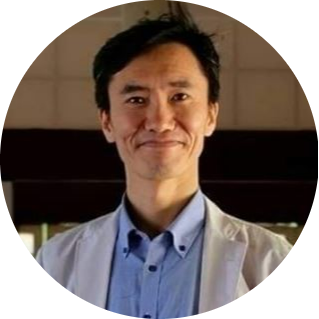
Dr Kim DaeKeun (Dave) is the Director of the Corporate Research Institute at iMediSync Inc. He is also the principal investigator for the AI data collection and machine learning model for cognitive disorders. Dr Kim is the project leader at iMediSync for the development of the 19 channel dry EEG and Photobiomodulation headset – iSyncWave. The headset was developed in 2021 and recently has received FDA approved. Dr Kim was the senior researcher at iMediSync for the development of an AI automated analysis platform iSyncBrain for QEEG guided digital mental health. He is also the principal investigator for the development of automatic QEEG analysis for early prediction and diagnosis of cognitive dysfunction and dementia using artificial intelligence machine learning. This work is in conjunction with the Ministry of Science and ICT South Korea. Dr Kim was the senior researcher in developing the world’s first sex and age classified normative QEEG database at Seoul National University. Dr Kim has also developed an electrophysiological biomarker of self healing. He had started with Electrical Engineering and got Ph.D. in Emotion Engineering.
Abstract:
AI guided Integrative EEG/HRV automated analysis with AMICA window for understanding patient’s symptoms and designing personalized neuromodulation protocols.
In this presentation, Dave will share a brief overview of quantitative EEG landscapes using AMICA (Adaptive Mixture Independent Component Analysis) based EEG processing with sex classified normative database and various machine learning biomarkers. Through case series, he would like to introduce how we can combine abnormal components for associating with patient symptoms. HRV analytics with GAS (General Adaptive Syndrome) phase model and emotion evaluation model can be integrated for fully understanding a patient's symptoms. Based on these integrative windows with AMICA components, the personalised neuromodulation protocol can be designed and further integrated with neurofeedback protocol.
Vivek Sharma (Australia)
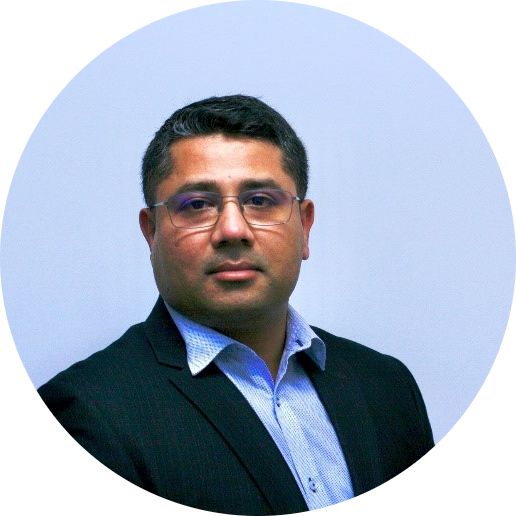
Dr Vivek Sharma did MD (Psychiatry) from King George’s Medical University in India. After realizing the limited impact of conventional psychiatric treatments in severe mental illness, he developed a specialized interest in neuromodulation and became Board-Certified in Neurofeedback. He is also accredited as a Diplomate in QEEG. He has been using QEEG-guided neurofeedback training at ZenWaves Clinic to treat people suffering from Developmental trauma, Traumatic brain injury and Chronic fatigue syndrome among other conditions. He conducted a pilot study on QEEG-guided neurofeedback in early psychosis and developmental trauma at headspace-Early Psychosis Penrith in 2021.
Abstract:
QEEG-guided Neurofeedback in Young People with Early Psychosis and a History of Developmental Trauma
A case series presentation of clients with early psychosis and complex trauma who responded to neurofeedback. The discussion will include their clinical presentation, QEEG finding, QEEG based medication selection and specific protocols used.
Jillian Harrington (Australia)

Jillian Harrington is a practicing clinical psychologist and neurofeedback practitioner, and a Director of the Australian Psychology Accreditation Council and of the Blue Knot Foundation, as well as a member of the ANSA Committee. Jillian also sits on the National Committee of the APS College of Clinical Psychologists (Chair, Health Policy), as well as the Nepean Blue Mountains PHN Allied Health Clinical Council.
Abstract:
The Future of Neurofeedback in Australia
A facilitated forum and ANSA community discussion: what are the opportunities and challenges ahead, for the field of neuromodulation in Australia? How can ANSA and its members be ready to seize the opportunities, and face the challenges or threats? Pour yourself a glass of something wonderful, grab the tealeaves or your crystal ball, put your camera on and unmute for an open discussion with interested colleagues about the future of the field we all hold so dear.
FOR FURTHER INFORMATION GO TO: http://www.appliedneuroscience.org.au/page-748949
Tickets for good, not greed Humanitix dedicates 100% of profits from booking fees to charity


